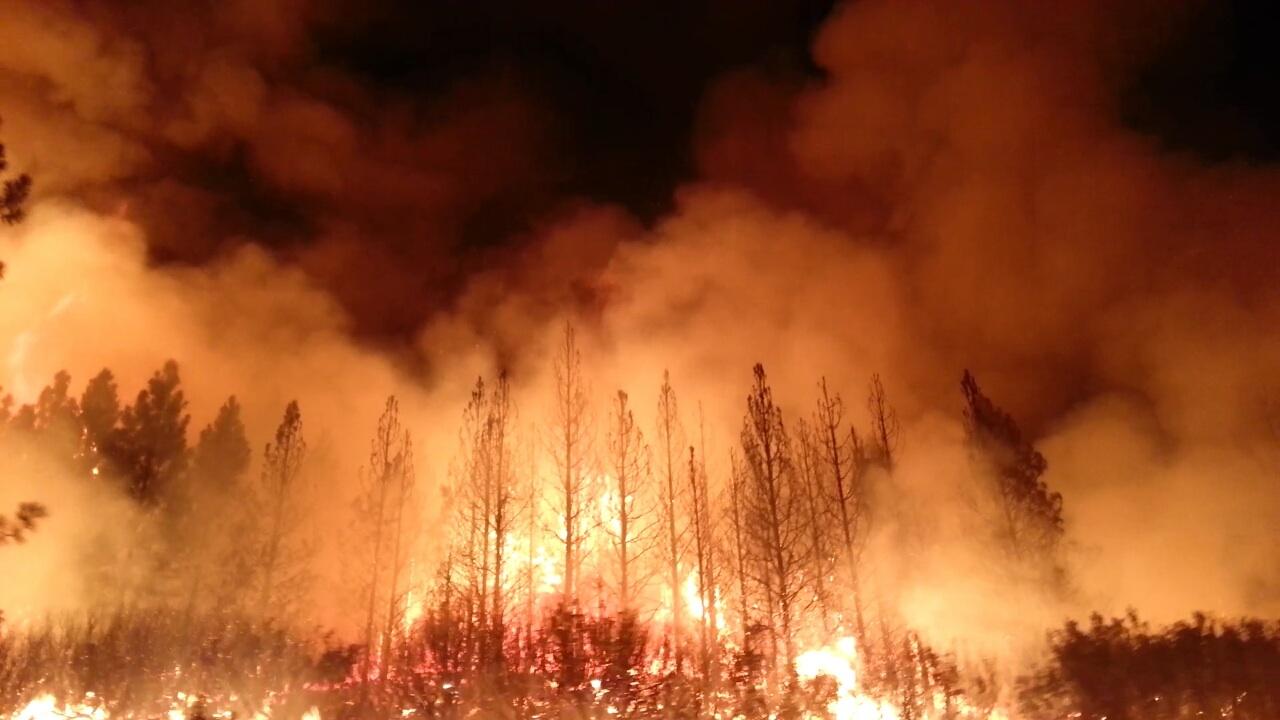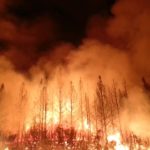
13 Nov CFP: “Understanding, Acknowledging, Representing, Environmental Emergency”
E-Rea Special Issue of June 2021
Guest editors: Sylvie Nail & Camille Manfredi
In an article dated 2006, climate scientists advocated more research into:
“the social and cultural processes of speaking about climate, of the formation and usage of lay knowledge, of the formation and social functioning of mental images, icons and popular explanations of climate and its interaction with people. We are in need of social and cultural sciences to map, understand and, as far as possible, predict the social and cultural construction of climate. […]. This type of knowledge is urgently needed to guide policy-makers and the public in developing and adopting rational policies for dealing with the very real prospect of significant future climate change.” (von Storch & Stehr, 2006)
This special issue aims at doing just that: mapping and understanding the ways in which environmental emergency is coped with by the people, addressed by the media and tackled by political institutions, while taking into consideration the many different political, ideological and cultural contexts of the countries and regions of the Anglosphere.
Our first task will be to trace back the origins of the concept of climate and environmental emergency. Although the first occurrences of the word “emergency” in relation to climate change appeared in the aftermath of the publication of David Spratt and Philip Sutton’s Climate Code Red: The Case for Emergency Action (2008), one might look, for instance, at the British Parliament’s preoccupations with manmade climatic implications in British tropical colonies 200 years ago, or at the political, institutional and cultural reactions to natural disasters, from the Middle Ages to the UK Labour Party’s Early Day Motion of 15 October 2009 and beyond.
Environmental history and, more recently, environmental humanities, have been crucial in weaving together “human experience with the workings of nature into a fuller understanding of the past and how it affects human decisions and destinations” (Sörlin & Warde, 2009). Likewise, in this special issue, we aim at scrutinising environmental emergency from the cross-pollinating perspectives of politics, history, sociology and arts in the hope of finding resonances conducive to an analysis of what characterises the understanding of, and reactions to, the environmental conundrum in English-speaking countries.
Environmental and climate emergency will also be approached as pertaining to cognitive processes and communicational apparatuses, whether these are verbal, iconic or intermedial, euphemistic or dysphemistic. How do the media, governments, activists and artists assess, relay, amplify or deny the Intergovernmental Panel on Climate Change’s reports? See for instance how in May 2019, shortly after the British Parliament officially declared environmental emergency, the Guardian updated its house style:
“Instead of “climate change” the preferred terms are “climate emergency, crisis or breakdown” […] People need reminding that the climate crisis is no longer a future problem – we need to tackle it now, and every day matters.” (Carrington, 2019)
What words, what icons, what figures of speech even to speak about, declare the state of environmental and climate emergency? One might think, for instance, of the now famous parable of the hummingbird, of French historian Jean-Paul Deléage’s “our house is on fire” metaphor (in 2002) and its re-use by environmental activist Greta Thunberg at the 2019 World Economic Forum in Davos: “I don’t want your hope, I don’t want you to be hopeful. I want you to panic, I want you to feel the fear I feel every day. And then I want you to act, […] I want you to act as if the house was on fire, because it is”, or of Extinction Rebellion’s equally sharp incentive to action: “The science is clear. It is understood that we are facing an unprecedented global emergency. We are in a life or death situation of our own making. We must act now.”
As XR activists occupy the streets of Paris and London, as Thunberg allies with George Monbiot on social media to urge us all to “Protect, Restore, Fund” (#naturenow) and as young people are at the forefront of environmental activism as part of a generational shift in attitudes and values, in what terms and to what ends do whistle-blowers, movements of civil disobedience (Greenpeace, Friends of the Earth, XR, school strikers, Sea Shepherd, Earth First!…), First Peoples (Standing Rock, Flint’s ‘water warriors’, People’s Summit 2019…), governmental and non-governmental organisations sound the alarm?
In the field of verbal and nonverbal arts, how does climate and environmental emergency prompt, inform or constrain artistic production? Must we, can we, aestheticize or artialize environmental emergency? What part can artists play in the tackling of pressing environmental issues? Tim Flach’s multiyear project Endangered (2017) or street artist Banksy’s verbo-visual support for XR in London (“From this moment despair ends and tactics begin”) provide cases in point. How do pressing environmental issues and public policies on environmental sustainability work their way into the literatures and visual arts of the Anglosphere?
The present call for contributions thus invites historical as well as contemporary perspectives on the protean concept of environmental emergency, with a view to throwing light on its many (re)interpretations and (re)definitions across time, on the evolution of social and institutional responses to said emergency, as well as on its representations in the media, literature and visual arts of the Anglosphere.
The editors invite proposals that focus on (but are not limited to):
– political, institutional, educational, social responses to climate and environmental emergency
– climate and environmental emergency in the media, social media, political speeches…
– actions, (mis)representations of whistle-blowers, water warriors, school strikers, environmental activism and civil disobedience in the context of environmental emergency across the Anglosphere
– writing and imaging climate emergency
– deep ecology, eco-modernism, eco-anxiety, solastalgia, degrowth and anti-consumerism in the literatures and arts of the Anglosphere
Please send a 200-word abstract in English, along with the author’s short bio-bibliography by 31 January 2020 to both Pr. Sylvie Nail (sylvie.nail@univ-nantes.fr) and Pr. Camille Manfredi (camille.manfredi@univ-nantes.fr)
Abstract acceptance will be notified to all authors by mid-February 2020. The commissioned contributions will be due on 31 October 2020. All submissions will undergo peer review and may include illustrations with copyright to be secured by the author. The special issue will be published in E-Rea in June 2021.
Selective bibliography:
Allitt, Patrick. A Climate of Crisis: America in the Age of Environmentalism. New York: Penguin, 2014.
Carrington, Damian, “Why the Guardian is changing the language it uses about the environment”, The Guardian, 17 May 2019.
Connolly, William E. Facing the Planetary: Entangled Humanism and the Politics of Swarming. Durham: Duke University Press, 2017.
Cunsolo, A., Landman, K (eds), Mourning Nature: Hope at the Heart of Ecological Loss and Grief. Montreal and Kingston: McGill-Queen’s University Press, 2017.
Extinction Rebellion, The Emergency. Available at https://rebellion.earth/the-truth/the-emergency/
Gore, Al. An Inconvenient Truth: The Planetary Emergency of Global Warming and What We Can Do About It. New York: Rodale, 2006.
Intergovernmental Panel on Climate Change, Climate Change 2014. Synthesis Report. Contribution of Working Groups I, II and III to the Fifth Assessment Report of the Intergovernmental Panel on Climate Change [Core Writing Team, R.K. Pachauri and L.A. Meyer (eds.)]. Geneva: IPCC, 2015.
Klein, Naomi. This Changes Everything: Capitalism vs. the Climate. New York: Simon & Schuster, 2014.
—-. On Fire: The (Burning) Case for a Green New Deal. New York: Simon & Schuster, 2019.
Kolbert, Elizabeth. The Sixth Extinction: An Unnatural History. New York: Henry Holt, 2014.
Lovelock, James. The Vanishing Face of Gaia: A Final Warning. New York: Basic Books, 2009.
Lynch, Amanda H. Siri Veland. Urgency in the Anthropocene. Cambridge MA: MIT Press, 2018.
Mauch, Cristof, Christian Pfister. Natural Disasters, Cultural Responses: Case Studies Toward a Global Environmental History. Plymouth: Lexington Books, 2009.
Pauli, Benjamin J. Flint Fights Back: Environmental Justice and Democracy in the Flint Water Crisis. Cambridge MA: MIT Press, 2019.
Scranton, Roy. We’re Doomed. Now What? Essays on War and Climate Change. New York: Soho Press, 2018.
Sörlin, Sverker and Paul Warde (eds). Nature’s End. History and the Environment. Palgrave, 2009.
Steiner, Ted. Acts of God: The Unnatural History of Natural Disaster in America. Oxford University Press, 2006.
Von Storch, Nico and Nico Stehr. “Anthropogenic Climate Change: A Reason for Concern Since the 18th Century and Earlier”, Geografiska Annaler Series A Physical Geography, 88 A (2): 107-113.
Zeldin-O’Neill, Sophie. “Environment ‘It’s a crisis, not a change’: the six Guardian language changes on climate matters”, The Guardian, 16 October 2019, https://www.theguardian.com/environment/2019/oct/16/guardian-language-changes-climate-environment
—
Image by USDA: “The Rim Fire burned more than 250,000 acres (1,000 km2) of forest near Yosemite National Park, in 2013″




No Comments